There were, of course, survivors. The world was not destroyedjust a way of life. The global population was cut down to perhaps one-fifth of what it had been. The ecosystems were utterly disrupted. The climate was transformed. In what had once been North America, the survivors struggled to prevail in a new age of plague, radiation sickness, barbarism and madness.
There were days of seemingly endless night, eerily lit by fires in the sky. Pyrotoxin smogs blanketed the earth. Fetid strontium swamps created new and terrible life forms. Two-hundred-mile-an-hour winds hurtled across the landscape, and when by some freak chance a storm cloud swept in from the sea, it was acid rain that fell pure acid that stripped a man to the bones in sixty seconds of shrieking agony. In spite of this, life returned. And won. Sort of. Sort of.
DEATHLANDS Pilgrimage to Hell By JACK ADRIAN  Prologue THE WORLD BLEW OUT in 2001. To be precise, at noon on January 20, 2001. There was an irony that only a very few people fully appreciated. That is, about 0.0001 percent of those who survived. Back about thirty years or so a science fiction writer called Arthur C. Clarke had gotten together with a movie director called Stanley Kubrick and made a film called 2001: A Space Odyssey.
Prologue THE WORLD BLEW OUT in 2001. To be precise, at noon on January 20, 2001. There was an irony that only a very few people fully appreciated. That is, about 0.0001 percent of those who survived. Back about thirty years or so a science fiction writer called Arthur C. Clarke had gotten together with a movie director called Stanley Kubrick and made a film called 2001: A Space Odyssey.
The film, the beginning of a series of such films, had a message. For many who had seen it and read the story in the last quarter of the twentieth century, the year 2001 had become a symbol of optimism and hope for the future of mankind. Calmer times were only just around the corner. Peace and prosperity were assured. The world blew out in 2001. So much for fantasy.
THE FULL DREADFUL REALITY began at noon on that crisp and clear January day with a one-megaton blast in Washington, D.C., power base of the United States of America and political center of the Western world. The bomb was not triggered above the city, nor was it the result of a preemptive strike by a passel of missiles hurtling in through the air defense screens and hitting the deck. It erupted without warning in the bowels of the Soviet embassy, in a basement section that was a restricted area even to the ambassador, V. A. Vorishin, who, like just about everyone else within a five-mile radius, was vaporized. Mr.
Vorishin was not actually in the embassy at the time. He, along with a multitude of other foreign dignitaries and a vast assemblage of national and civic leaders, journalists, members of the judiciary, show biz personalities and thousands who were just along for the spectacle, was on Capitol Hill, attending the inauguration of the forty-third President of the United States, a man in his sixties, a man who had first come to fame back in the early 1980s as a dark-horse contender for the Democratic leadership, strongly favored at the time by young voters called "yuppies." Within the blast area itself a number of things happened inside a very short time. The flash, which grew in brightness to one thousand times the sun's radiance in two seconds, ignited all flammable materials. The blast hurtled outward, pulverizing anything and everything that stood in its way. Tall buildings were uprooted like trees, falling apart as they descended to the earth, the shattered pieces of masonry, stone, steel girders and glass sent whirling in a deadly vortex. A tremendous ball of fire, expanding rapidly and angrily, roared like dragon's breath up into the troposphere and beyond, fed by the thousands of smaller conflagrations that had started almost instantaneously.
Incredibly, a few, a very few, of those in the city survived the initial blast, but they were soon put out of their misery. Within a few minutes two other, smaller, bombs exploded: one, to the northwest of the city in Bethesda, beneath a chic art gallery owned by a man whose father had "defected" to the West from Bulgaria twenty years earlier; the other, to the south, in the basement storage area of a large drugstore situated in Indian Head, across the river. The effect of these two secondary bombs can only be described as monstrous. The initial shock wave, already losing momentum, was renewed, strengthened, fortified. A firestorm developed. Hurricane-force winds hurled the superheated fire-mass around until the very air itself seemed to ignite.
The Potomac River was sucked up into the fiery sky in a vast, roiling waterspout that evaporated even as it rose. Dust and ash and pulverized debris cut off the sunlight, as though someone had thrown a switch. Immense damage was sustained in Baltimore, Hagerstown, Fredericksburg, Annapolis. The city of Washington, along with its inner and outlying suburbs, was wiped off the face of the earth, leaving only a crater large enough to house a few Shea Stadiums and a lot of seared rubble. IT IS NOW, OF COURSE, CLEAR that this was merely the climax to the first chapter in the grim saga of the end of Western civilization. For the catastrophe was not the result of a sudden mistake on someone's part, an ill-understood order or a chance accident.
There had to be a prologue. Some might argue that the prologue began to unfold when Karl Marx first met Friedrich Engels and began to postulate an alternative political creed to that which held sway in the early nineteenth century. Others might push the jumping-off point further back in time: to the French Revolution, say, or the teachings of Rousseau and Babeuf. Or perhaps the insurrectionary sermons preached by the fiery hedge priest John Ball prior to the Peasants' Revolt in England in 1381 were indirectly to blame. Or even But this is academic. Although the roots of the virtual destruction of a global way of life must necessarily lie deep in the past, the actual concrete and significant causes clearly took place within a generation of the moment of disaster.
The history of the last fifty years of the twentieth century is one of general gloom shot with stabs of light. Perhaps one could say the same about the history of the world since man first shuffled out of the caves and began to hunt and gather and till the land. But so much happened during the twentieth century, and so much of it happened so fast, that a good analogy might be of a car on a long downward slope whose driver suddenly discovers that the fluid is running out of his brakes. No matter that the slope is a gentle one; once momentum has been achieved, a certain point reached then passed, there is no stopping the downward rush that very soon becomes headlong, irreversible, terminal. The United States, deliberately isolationist in between the First and Second World Wars and yet historically jealous of Great Britain's high global profile during and before that period, was swift to change its foreign policy and seize the guardianship of the Western world from the 1950s onward. During this time atomic power became more than just a science fiction cliche; West and East glared at each other during the Cold War; tensions eased as detente became a political priority; pacts were signed, treaties ratified; an arms race began, got out of hand; black-gold blackmail became a hideous reality when the Arab oil states became greedy for power; money markets throughout the world rocked and teetered; enormous economic depression arrived, stayed for more than a decade.
In the 1960s and 1970s America got its fingers burned in Southeast Asia, fighting a war that, despite what later apologists maintained, could never have been won. In the late 1980s to early 1990s, the same old story was rerun in Latin America, for the same old reasons. This time, however, the stakes were higher and the face cards more evenly distributed. For a time the world tottered on the brink of a Third and probably final World War. In the end, both superpowers, Russia and America, backed off. For the moment, mutual face-saving became the order of the day.
Next page
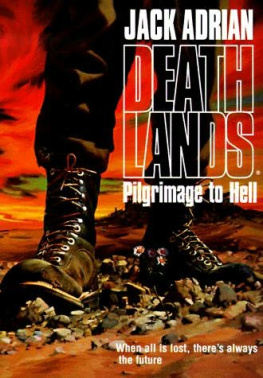
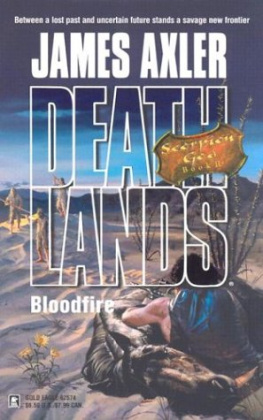


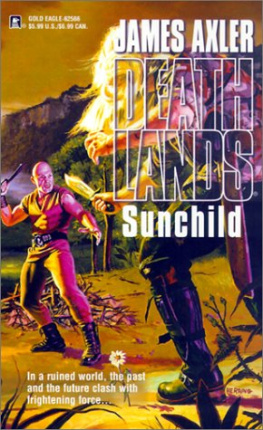
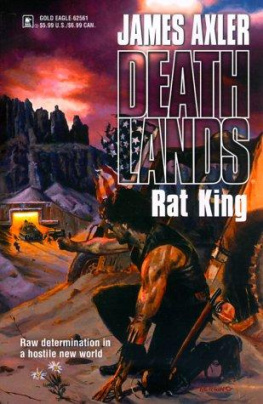
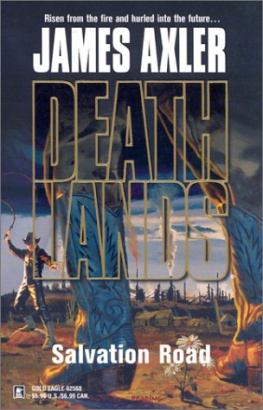

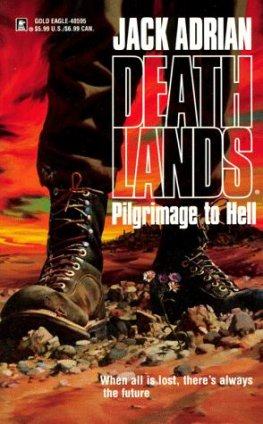

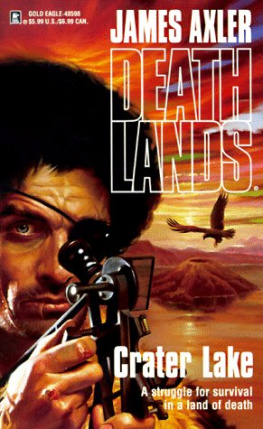
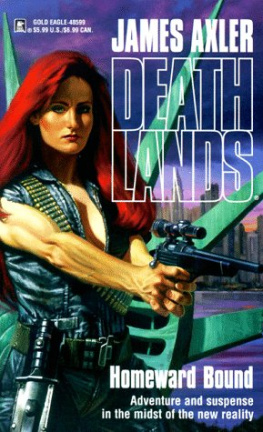


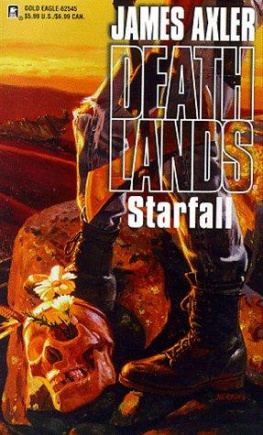
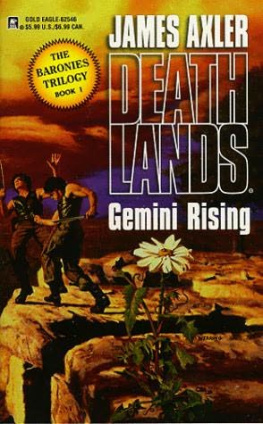
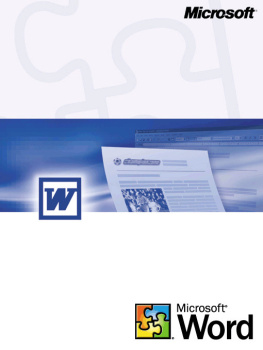
 Prologue THE WORLD BLEW OUT in 2001. To be precise, at noon on January 20, 2001. There was an irony that only a very few people fully appreciated. That is, about 0.0001 percent of those who survived. Back about thirty years or so a science fiction writer called Arthur C. Clarke had gotten together with a movie director called Stanley Kubrick and made a film called 2001: A Space Odyssey.
Prologue THE WORLD BLEW OUT in 2001. To be precise, at noon on January 20, 2001. There was an irony that only a very few people fully appreciated. That is, about 0.0001 percent of those who survived. Back about thirty years or so a science fiction writer called Arthur C. Clarke had gotten together with a movie director called Stanley Kubrick and made a film called 2001: A Space Odyssey.